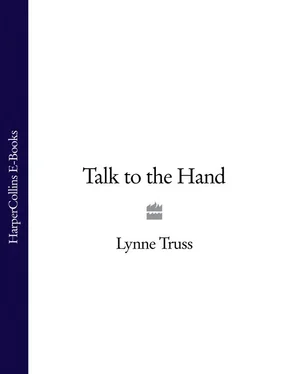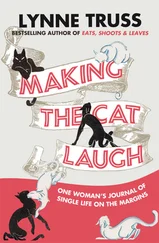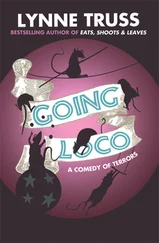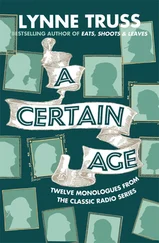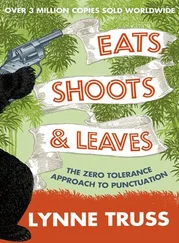Talk to the Hand
Lynne Truss
Other people are quite dreadful. The only possible society is oneself. Oscar Wilde
An apology is a gesture through which an individual splits himself into two parts: the part that is guilty of the offence, and the part that dissociates itself from the delict and affirms a belief in the offended rule. Erving Goffman
Fuck off, Norway.
Paul Gascoigne, on being asked if he had a message for the people of Norway
Cover Page
Title Page Talk to the Hand Lynne Truss
Dedication Other people are quite dreadful. The only possible society is oneself. Oscar Wilde An apology is a gesture through which an individual splits himself into two parts: the part that is guilty of the offence, and the part that dissociates itself from the delict and affirms a belief in the offended rule. Erving Goffman Fuck off, Norway. Paul Gascoigne, on being asked if he had a message for the people of Norway
Author’s note Author’s note The author apologises for the high incidence of the word “Eff” in this book. It is, sadly, unavoidable in a discussion of rudeness in modern life. Variants such as Effing, mother-Effing, and what the Eff? positively litter the text. If you don’t Effing like it, you know what you can Effing do. (That’s a joke.)
Introduction: When Push Comes to Shove
THE FIRST GOOD REASON Was That So Hard to Say?
THE SECOND GOOD REASON Why am I the One Doing This?
THE THIRD GOOD REASON My Bubble, My Rules
THE FOURTH GOOD REASON The Universal Eff-Off Reflex
THE FIFTH GOOD REASON Booing the Judges
THE SIXTH GOOD REASON Someone Else Will Clean It Up
Conclusion: Talk to the Hand
Bibliography
Acknowledgements
About the Author
Praise
By the same author:
Copyright
About the Publisher
The author apologises for the high incidence of the word “Eff” in this book. It is, sadly, unavoidable in a discussion of rudeness in modern life. Variants such as Effing, mother-Effing, and what the Eff? positively litter the text.
If you don’t Effing like it, you know what you can Effing do. (That’s a joke.)
Introduction: When Push Comes to Shove
If you want a short-cut to an alien culture these days, there is no quicker route than to look at a French phrase book. Not because the language is different, but because the first lesson you will find there usually takes place in a shop.
“Good morning, madam.”
“Good morning, sir.”
“How may I help you?”
“I would like some tomatoes/eggs/postage stamps please.”
“Of course. How many tomatoes/eggs/postage stamps would you like?”
“Seven/five/twelve, thank you.”
“That will be six/four/two Euros. Do you have the exact money?”
“I do.”
“Thank you, madam.”
“Thank you, sir. Good day!”
“Good day!”
Now the amazing thing is, this formal and civil exchange actually represents what happens in French shops. French shopkeepers really say good morning and goodbye; they answer questions; they wrap things ever so nicely; and when it’s all over, they wave you off like a near relation. There is none of the dumb, resentful shrugging we English shoppers have become so accustomed to. Imagine an English phrase book for French visitors, based on the same degree of verisimilitude – let’s call it “ Dans le magasin ”.
“Excuse me, do you work here?”
“What?”
“I said, excuse me, do you work here?”
“Not if I can help it, har, har, har.”
“Do you have any tomatoes/eggs/postage stamps?”
“Well, make your mind up, that’s my mobile.”
This book has quite a modest double aim: first, to mourn, without much mature perspective or academic rigour, the apparent collapse of civility in all areas of our dealings with strangers; then to locate a tiny flame of hope in the rubble and fan it madly with a big hat. Does this project have any value? Well, in many ways, no. None at all. First, it is hardly original or controversial to declare oneself against rudeness. (One is reminded of that famous objection to the “Women Against Rape” campaign: “Are there any women for rape?”) Secondly, it seems that an enormous amount of good stuff has been written on this subject already, and the plate has been licked pretty clean. Thirdly, and even more discouragingly, as long ago as 1971, the great sociologist Erving Goffman wrote that “concern about public life has heated up far beyond our capacity to throw light on it”. So, to sum up: it’s not worth saying; it’s already been said; and it’s impossible to say anything adequate in any case. This is the trouble with doing research.
However, just as my book on punctuation was fundamentally about finding oneself mysteriously at snapping point about something that seemed a tad trivial compared with war, famine, and the imminent overthrow of Western civilisation, so is Talk to the Hand. I just want to describe and analyse an automatic eruption of outrage and frustration that can at best cloud an otherwise lovely day, and at worst make you resolve to chuck yourself off the nearest bridge. You are lying in a dentist’s chair, for example, waiting quietly for an anaesthetic to “take”, and the dental nurse says, next to your left ear, “Anyway, I booked that flight and it had gone up forty quid.” At which the dentist says, in your right ear, “No! What, in two hours?” And you say, rather hotly, “Look, I’m not unconscious, you know”, and then they don’t say anything, but you know they are rolling their eyes at each other, and agreeing that you are certifiable or menopausal, or possibly both.
Whether it’s merely a question of advancing years bringing greater intolerance I don’t think I shall bother to establish. I will just say that, for my own part, I need hardly defend myself against any knee-jerk “grumpy old woman” accusations, being self-evidently so young and fresh and liberal and everything. It does, however, have to be admitted that the outrage reflex (“Oh, that’s so RUDE!”) presents itself in most people at just about the same time as their elbow skin starts to give out. Check your own elbow skin. If it snaps back into position after bending, you probably should not be reading this book. If, on the other hand, it just sits there in a puckered fashion, a bit rough and belligerent, then you can probably also name about twenty things, right now, off the top of your head, that drive you nuts: people who chat in the cinema; young people sauntering four-abreast on the pavement; waiters who say, “There you go” as they place your bowl of soup on the table; people not even attempting to lower their voices when they use the “Eff” word. People with young, flexible elbow skin spend less time defining themselves by things they don’t like. Warn a young person that “Each man becomes the thing he hates”, and he is likely to reply, quite cheerfully, that that’s OK, then, since the only thing he really hates is broccoli.
By contrast, I now can’t abide many, many things, and am actually always on the look-out for more things to find completely unacceptable. I find myself thinking that bringing back National Service for men between the ages of 15 and 35 might be an excellent thing. I also entertain pleasant fantasies about the compulsory culling of those who obstinately refuse to learn the rules of the apostrophe. Yet I still, amazingly, deny a rightward drift in my thinking. I merely ask, in all innocence: isn’t it odd, the way many nice, youngish liberal people are beginning secretly to admire the chewing-gum penalties of Singapore? Isn’t it odd, the way nice, youngish liberal people, when faced with a teenaged boy skateboarding in Marks & Spencer’s, feel a righteous urge to stick out a foot and send him somersaulting into the Per Una Section? I will admit that the mere thought of taking such direct and beautiful vengeance – “There he goes!” – fills me with a profound sort of joy.
Читать дальше
